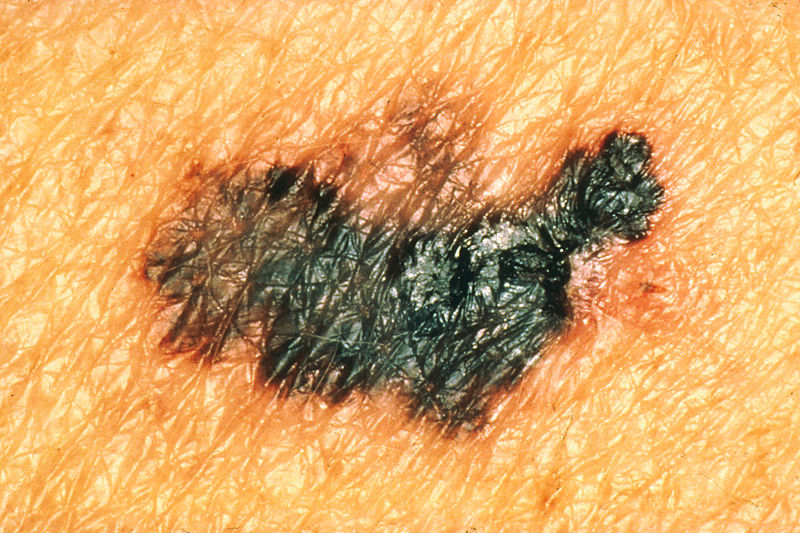US doctors have successfully beaten a man's melanoma (skin cancer) into remission using only his own immune cells.
 Cassian Yee and his colleagues at the Fred Hutchinson Cancer Research Centre in Seattle collected CD4 T lymphocytes, a form of white blood cell, from a 52 year old man who had developed malignant melanoma that was already spreading around his body. The team used growth factors to encourage the cells to divide, and then selected out just those cells that recognised a chemical marker, known as an antigen, called NY-ESO-1, which is present on the surfaces of some melanoma cancer cells. About five billion of these tumour-targeting T cells were then re-infused into the patient who, over the next 3 days, developed a mild fever and some aches and pains but otherwise showed no ill effects.
Cassian Yee and his colleagues at the Fred Hutchinson Cancer Research Centre in Seattle collected CD4 T lymphocytes, a form of white blood cell, from a 52 year old man who had developed malignant melanoma that was already spreading around his body. The team used growth factors to encourage the cells to divide, and then selected out just those cells that recognised a chemical marker, known as an antigen, called NY-ESO-1, which is present on the surfaces of some melanoma cancer cells. About five billion of these tumour-targeting T cells were then re-infused into the patient who, over the next 3 days, developed a mild fever and some aches and pains but otherwise showed no ill effects.
But two months after the infusion he underwent a repeat CT scan, which showed complete resolution of his melanoma, including the secondary spread that had been present in his lungs and lymph nodes. Even two years later he remains healthy and disease free.
Intriguingly, tests on the patient's melanoma showed that only about 50-75% of the tumour cells carried the NY-ESO-1 marked targeted by the T cells the team injected, which begs the question as to why the therapy was so effective if only half of the cells were potentially susceptible. The team think the answer is that the infused cells also helped to stimulate the immune system to recognise other antigens on the melanoma cells, including markers called melanoma antigen-3 (MAGE-3) and melanoma antigen recognised by T cells (MART-1), because cells targeting these markers appeared in the patient's blood following the therapy.
The research, published this week in the New England Journal of Medicine, marks the first time a patient has ever been put into long term cancer remission using just his own cells. However, the team are taking a cautious stance and emphasise that more tests are needed.
"We were surprised by the anti-tumour effect of these CD4 T cells and its duration of response," says Lee. "For this patient we were successful, but we would need to confirm the effectiveness of the therapy in a larger study."










Comments
Add a comment